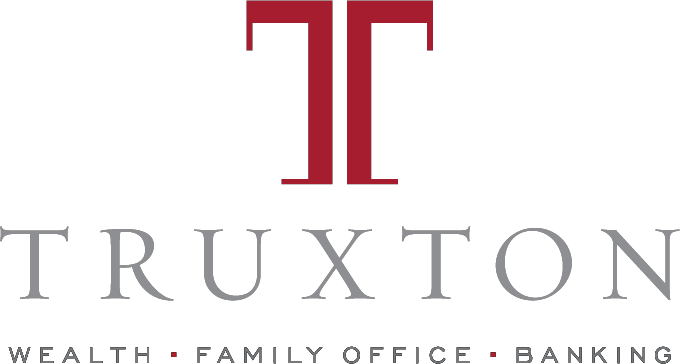Parallels Between Personal Security and Financial Security

Security lies at the epicenter of my profession. Practicing family law and advising clients on financial matters, in addition to thirty years of law enforcement, has given me perspective on what it takes to achieve safety and peace-of-mind.
In my unique position at Truxton, serving as both a Wealth Advisor and Director of Security, I often draw upon my past experiences which include numerous similarities between personal and financial security. As I advise clients and colleagues alike, taking a comprehensive approach to personal and financial security leads to a more secure and prosperous life. Let’s take a look at some of the strategies that are essential for protecting both your physical and fiscal health:
1. Risk Assessment and Management
| PERSONAL SECURITY | FINANCIAL SECURITY |
| In personal security, risk assessment involves identifying potential threats to one’s safety, such as physical harm, theft, or other forms of violence. This includes being aware of your surroundings, recognizing warning signs, taking appropriate precautions and having contingency plans for emergencies. | Financial risk management involves protecting your assets and income. This includes identifying potential financial threats such as job loss, medical emergencies, market fluctuations, unexpected expenses, diminished capacity, or even death. This might look like diversifying investments, using different vehicles to allocate wealth, and being prepared for unexpected financial challenges in order to mitigate potential loss. |
| COMMON PRINCIPLE | |
| Both domains require a proactive approach to identifying and managing risks. Regularly evaluating potential threats and having a plan in place to mitigate them is crucial. For personal security, this might mean taking a self-defense class or adding a security system. For financial well-being, it could mean having an emergency fund, a power of attorney in place, insurance, and a diversified investment portfolio. | |
2. Planning & Preparedness
| PERSONAL SECURITY | FINANCIAL SECURITY |
| Planning and preparedness measures for personal security include practicing situational awareness, avoiding risky areas and being personally vigilant. This also includes having plans for various scenarios and knowing how to respond to different situations, as well as having the necessary resources to handle such emergencies. Preparedness gives you the confidence to handle whatever comes your way…why be caught off guard? | Financial preparedness involves having a clear financial plan, setting goals, anticipating and preparing for future needs. This is where the help of a financial advisor (or expert) comes in handy. Having a plan and being prepared will give you peace of mind….why worry when you don’t have to? |
| COMMON PRINCIPLE | |
| Regular planning and monitoring allow for early detection of problems, enabling timely interventions. In both physical and financial contexts, staying vigilant helps in maintaining control and quickly addressing any issues that arise. It is always beneficial to have a clear course of action, especially in times of crisis (and Truxton can provide that guidance). Planning and being prepared for the unexpected will not only save you time and money, but could also save your life! | |
3. Continuous Monitoring & Adjusting
| PERSONAL SECURITY | FINANCIAL SECURITY |
| Feeling personally secure involves continuously monitoring your environment and making adjustments as you see things happening around you. It’s important to keep an eye on potential threats, direct you and/or your family away from harm and into safer territory and always ensure that you have the tools needed in case something unexpected happens. | Financial security requires continual monitoring, and possibly adjusting, your financial direction (or path/plan). Regularly reviewing your portfolio, staying abreast of changes in the law, tracking progress toward your goals, and receiving quality advice are keys to safeguarding financial stability. |
| COMMON PRINCIPLE | |
| When we stay vigilant and responsive we are able to maintain control by addressing potential issues before they become major problems. We might even be able to take advantage of circumstances or market conditions that will benefit us tremendously in the future. Continuous monitoring enables timely intervention, increasing the likelihood of favorable outcomes. | |
Today’s complex world presents a number of threats and challenges to our well-being. We can all benefit in our daily lives from assessing risks, staying prepared, and regularly monitoring our environments. Don’t wait for misfortune to come your way before developing a proper strategy for your physical and fiscal safety. Stay safe out there.

